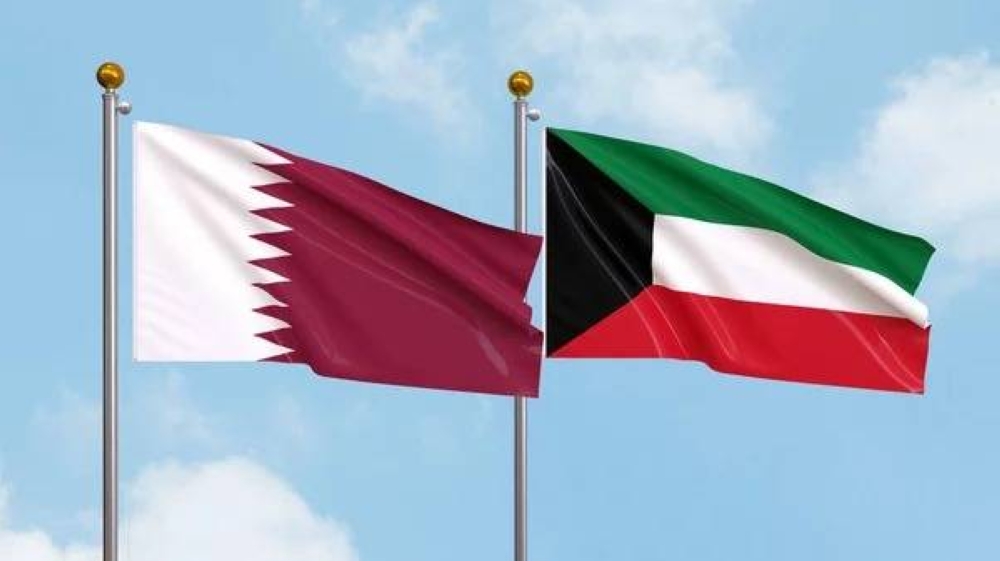Qatar
CEO of Kuwait Petroleum Corporation to QNA: Qatar-Kuwait relations successful model of sustainable cooperation

Deputy Chairman and Chief Executive Officer of Kuwait Petroleum Corporation (KPC), Sheikh Nawaf Saud Al-Nasser Al-Sabah, affirmed that the relations between Qatar and Kuwait represent a successful model of strategic and sustainable cooperation in various fields, particularly in energy.
In exclusive statements to Qatar News Agency (QNA), Al-Sabah highlighted the continuous efforts of the two brotherly countries to strengthen their partnership through joint projects that benefit both sides.
The agreement signed between QatarEnergy and Kuwait Petroleum Corporation (KPC) to supply up to three million tons of liquefied natural gas (LNG) annually to the State of Kuwait for 15 years starting next year, is the second of its kind in a short period as the two sides signed a similar agreement in 2020, which came into effect in 2022, he said.
The new agreement will enhance cooperation between Qatar and Kuwait in the field of energy security, particularly in electricity generation and will support Kuwait's strategy to transition to clean energy sources. This will contribute to improving air quality and meeting the increasing demand for electricity during challenging periods, such as the summer season, the KPC Deputy Chairman and CEO noted.
Regarding the oil market, price levels and the OPEC+ agreements to extend voluntary additional production cuts until the end of next year, the KPC CEO said that oil markets are volatile given the uncertainty of political changes in the region and global economic concerns, particularly in China, which affect the recovery of oil markets and determine the growth rates of global demand.
On the other hand, he affirmed Kuwait's confidence that OPEC and the OPEC+ have flexible mechanisms to monitor the market, ensuring the stability of oil markets, energy security, and the balance of the global economy.
OPEC+ has proven its success through proactive measures, regular meetings, and flexibility in adapting to market developments to ensure market balance and stability, with a full commitment to implementing decisions made to regulate the market, Sheikh Nawaf Saud Al-Nasser Al-Sabah added.
Regarding fair oil price levels and the factors influencing them, Sheikh Nawaf affirmed that there is no specific price that can be considered a fair price for a barrel of oil. He explained that these matters are determined by the supply and demand for oil, but the influencing factors are numerous and variable. Key factors include supply and demand, the price of the dollar, interest rates and geopolitical events.
Regarding the feasibility of gradually moving away from fossil fuels in favor of renewable energy amid the challenges of energy transition in many countries, Sheikh Nawaf Al-Sabah pointed out that global studies indicate an increase in global oil demand, which is expected to reach 110 million barrels per day. Kuwait's share of this is projected to be about 9% of OPEC's production, which is anticipated to exceed 39 million barrels per day by 2040.
UN estimates indicate that the world population will reach 9.8 billion by 2050, which will require an increase in oil and gas production to meet the needs of future generations.
At the end of his statements to QNA, the Deputy Chairman and CEO of Kuwait Petroleum Corporation affirmed that Kuwait aims to expand its exploration, production, refining, and petrochemical operations both within and outside the country. He acknowledged that oil will continue to dominate the energy mix until 2040 and the transition from oil to renewable and alternative energy will be gradual.
He clarified that Kuwait Petroleum Corporation and its subsidiaries are committed to achieving several key objectives, the most important of which is to gradually reach a sustainable crude oil production rate of 4 million barrels per day in Kuwait by 2035 and to maintain this level until 2040. (QNA)
